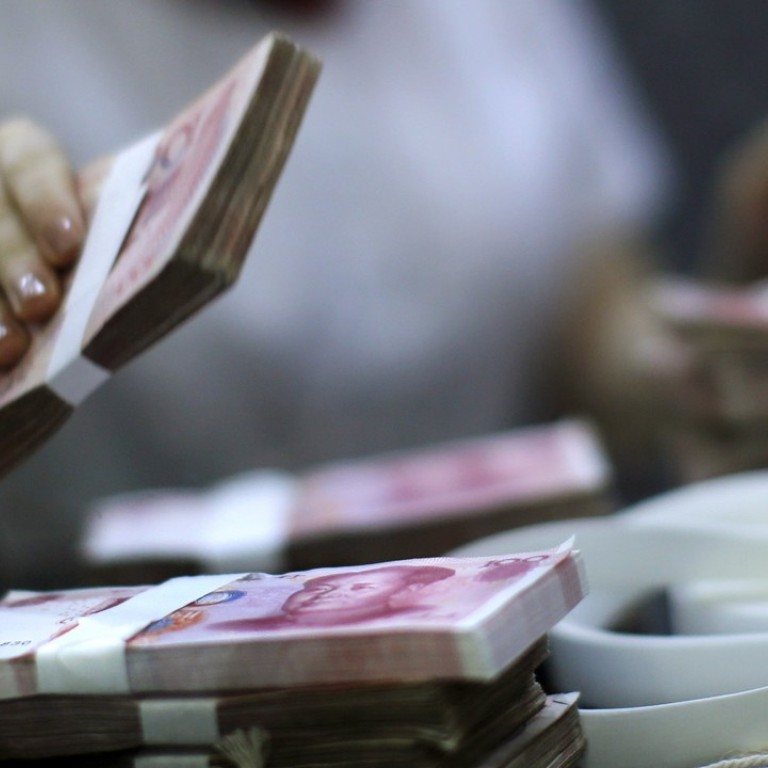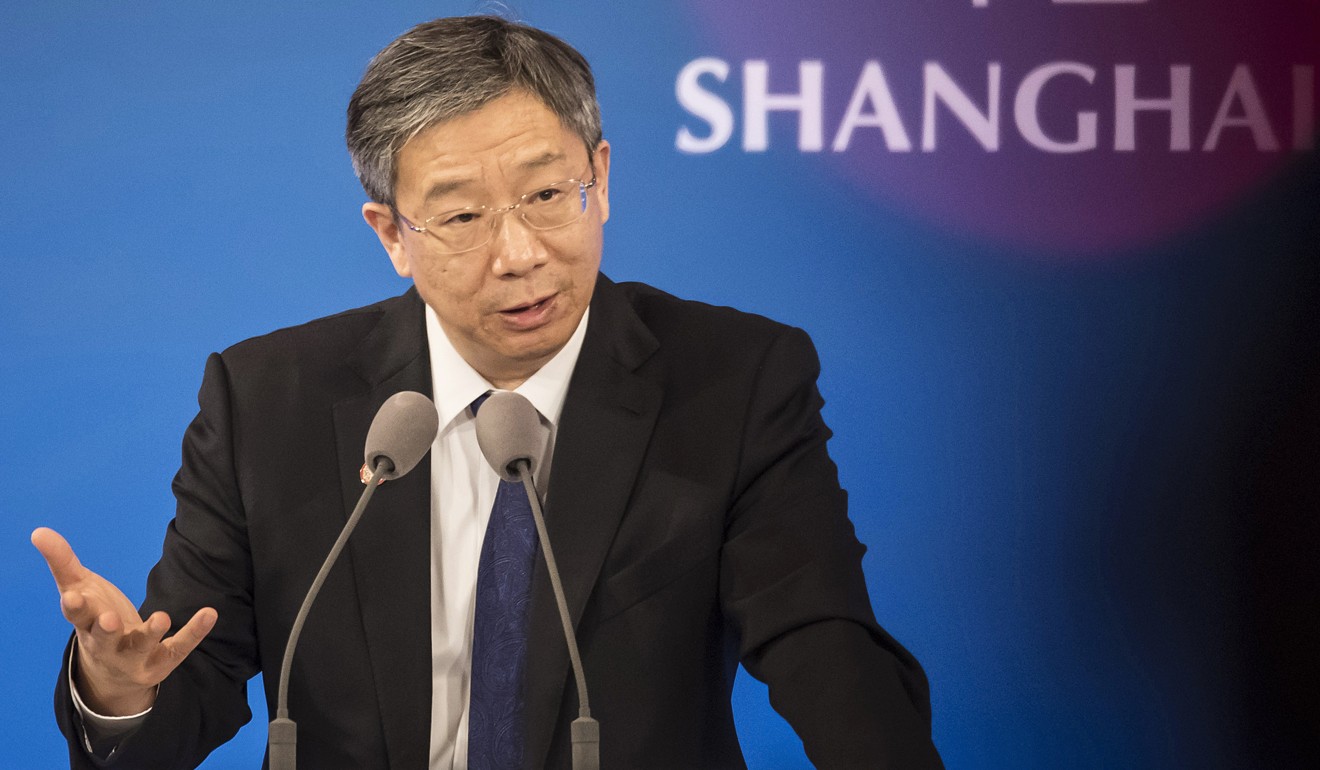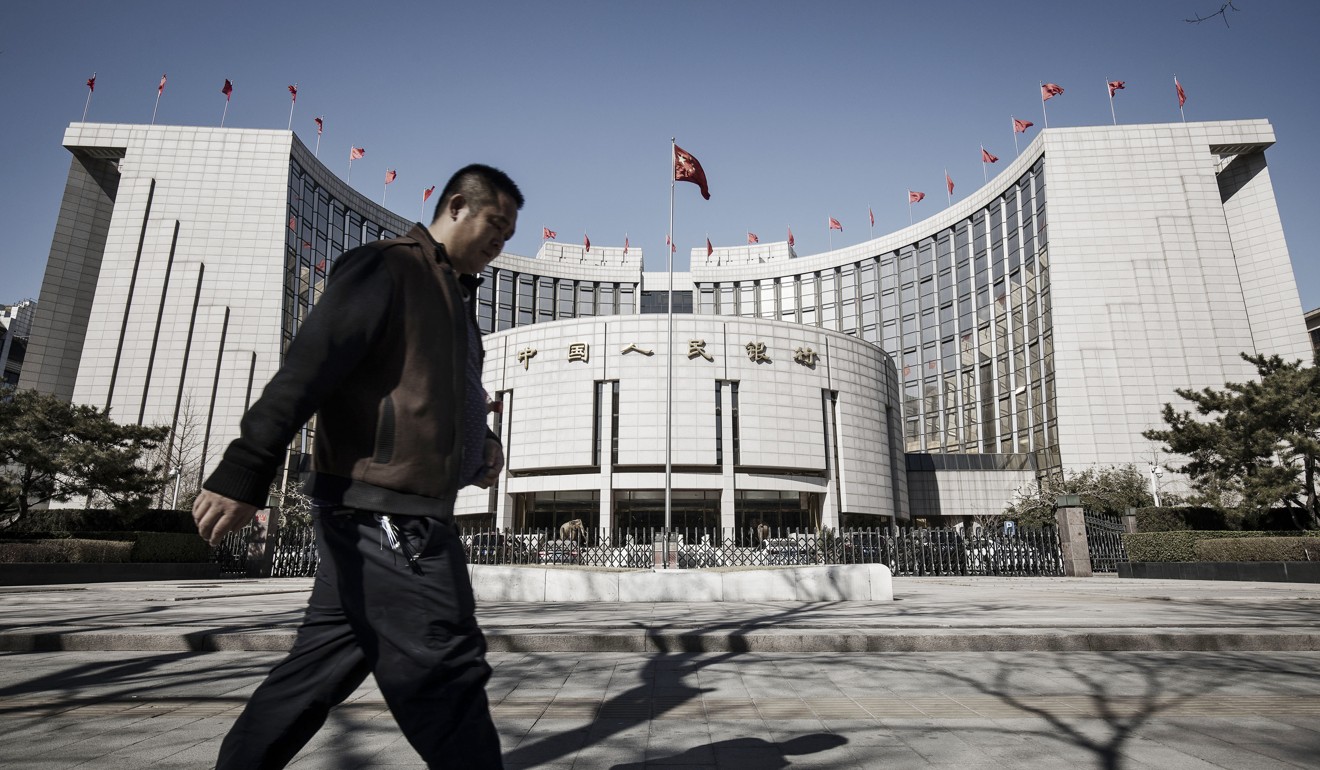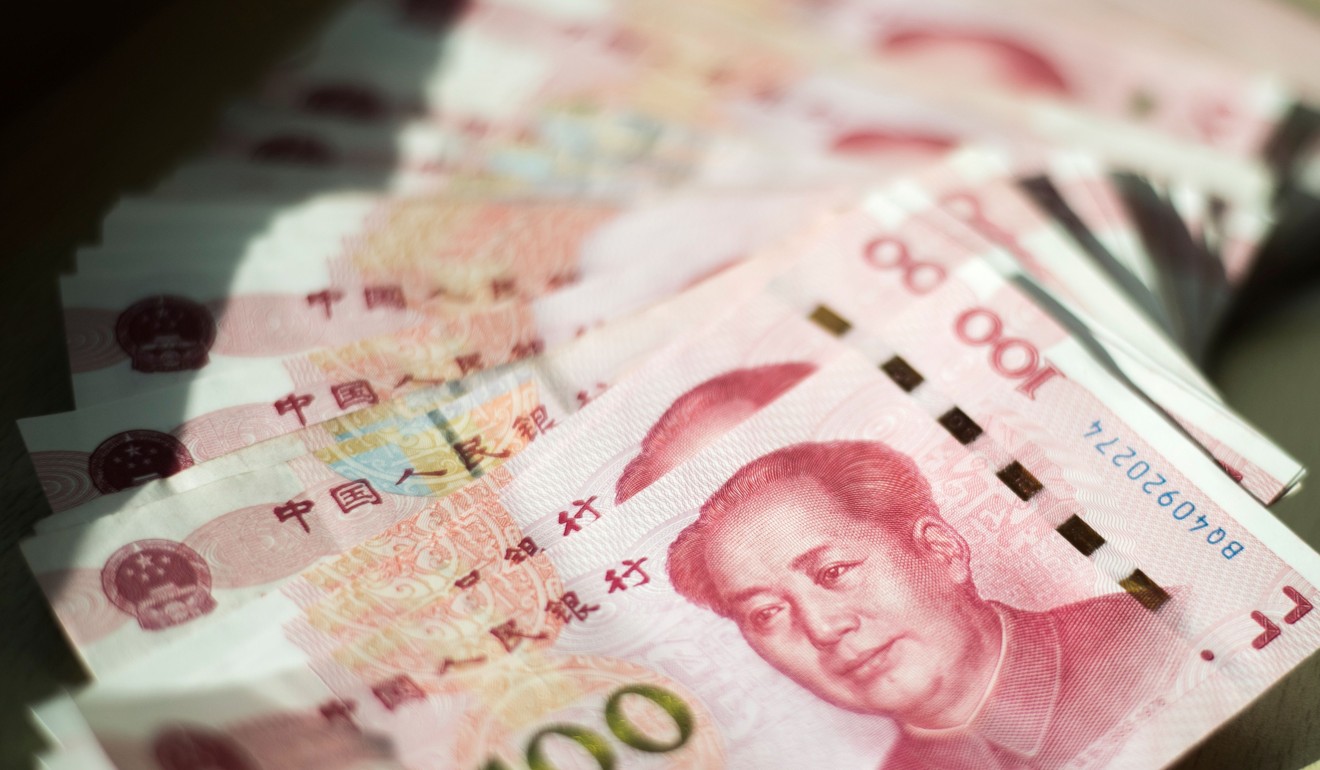
China’s central bank keen to avoid ‘irrational panic’ despite economic slowdown, says governor
- People’s Bank of China governor Yi Gang repeats pledge to maintain the stability of the yuan despite US trade war frictions by monitoring cross-border capital flows
- Former long-time aide of current Vice-Premier Liu He tells Tsinghua University bank will pay more attention to market interest rates rather than ‘will of officials’
China’s central bank will continue to fine-tune its monetary policy in a timely manner to better offset the slowdown in the country’s economy and look to maintain the stability of yuan exchange rate by closely monitoring cross-border capital flows to avoid “herd behaviour and irrational panic”, People’s Bank of China governor Yi Gang said on Thursday night.
“In the face of external shocks, we must take timely measures to prevent market instability and especially to stabilise public confidence,” Yi said in a lecture at the school of economic management at Tsinghua University.
“There indeed has been some external impact on our monetary policy this year, including trade friction and other market changes. Our monetary policy should be adjusted to reflect the economic situation.
“Amid the downward pressure on the economy, [we] need a modestly loose monetary environment. But it can not be too loose considering the need for external equilibrium. The [yuan] exchange rate will be affected if interest rates are too low.”
Yi also repeated the pledge to maintain the stability of the currency around current levels.
“The yuan has remained relatively stable so far this year, despite under the unfavourable conditions coming from China-US trade frictions,” Yi said.
The yuan’s 5.79 per cent depreciation against the US dollar is roughly the same as that against the euro and British pound.
“We have the experience, the tools and ample [foreign exchange] reserves … to maintain the basic stability of the yuan at a reasonable equilibrium,” Yi added.
The central bank is also trying to maintain financial stability using its new macro prudential assessment (MPA) mechanism, which rates the lending practices, loan quality and capital adequacy of banks.

According to Yi, the MPA mechanism will now not only target banks as set out in the first quarter of the year, but also include other financial institutions.
It will target functions such as cross-border capital flows, mortgage lending, property development loans and financial infrastructure involving settlements and payments, said Yi.
Control of cross-border capital flows is necessary to prevent “herd behaviour and irrational panic,” Yi said.
His comments come amid increasing evidence that the domestic economy is continuing to slow.
Growth fell to a decade-low of 6.5 per cent in the third quarter of 2018 and is expected to slow further as uncertainties remain high over the trade negotiations between Beijing and Washington, with the trade war currently two weeks into the 90-day truce agreed on December 1.
On Thursday, Politburo, China’s top decision-making body, said the government will focus on developing “a powerful home market” as a way to offset external uncertainties next year and “must firmly focus on accomplishing our own goals”.
“We should focus on tackling of major problems, handling well their pace and strength, while trying to optimise policy combinations to maximise their effectiveness,” Politburo said in a statement reported by China's state-owned Xinhua News Agency.
Yi, 60, was appointed to replace the retiring Zhou Xiaochuan at the helm of the central bank in March.
Before that, he was a long-time aide of Liu He in the general office of the Central Financial and Economic Affairs Commission, one of the top Communist Party organisations chaired by President Xi Jinping to steer the world’s second largest economy.

During the first half of this year, the People’s Bank of China (PBOC) under Yi’s leadership coordinated the government’s financial deleveraging campaign to reduce excess financial risks.
But the central bank swiftly switched tact to provide additional liquidity targeted to support small firms after Politburo acknowledged at its July meeting that “external uncertainties” were adversely affecting the economy and ordered policies to stabilise growth.
Yi noted in his speech on Thursday that these external challenges to China’s economy come as it seeks to shift from high-speed to high-quality growth.
“There will be no more double-digit growth, partly because of demographic factors. Economic growth in recent years has been close to its underlying growth potential,” he said.
Many analysts expect the PBOC to cut banks’ reserve requirement ratio – the amount of money banks are required to hold at the central bank – several more times next year to give banks more money to lend after cutting the ratio four times so far this year.
Some analysts say the central bank may even cut its headline policy rate, though Yi’s comments may suggest this is unlikely.

Yi said the central bank will pay more attention to market interest rates, which reflect the actual balance between supply and demand in financial markets, rather than being directed primarily by the “will of officials”.
“We are still in the process of shifting to price-based controls,” though the central bank has not fully given up its existing quantity-based liquidity management tools, such as quotas, Yi said.
“Quantity-based controls are simple, but they doesn’t reflect market rules. Decisions made by officials could be wrong, and there could be room for rent-seeking or even corruption when quotas are allocated to provinces or cities,” he said.
US-educated governor Yi, a fluent English speaker, has taken a bigger role in elaborating Beijing’s policy intentions to overseas audiences.
At the Bo’ao Forum for Asia in April, he announced a series of concrete steps to open up China’s financial markets, including allowing foreign firms to take major stakes in securities and insurance joint ventures.

